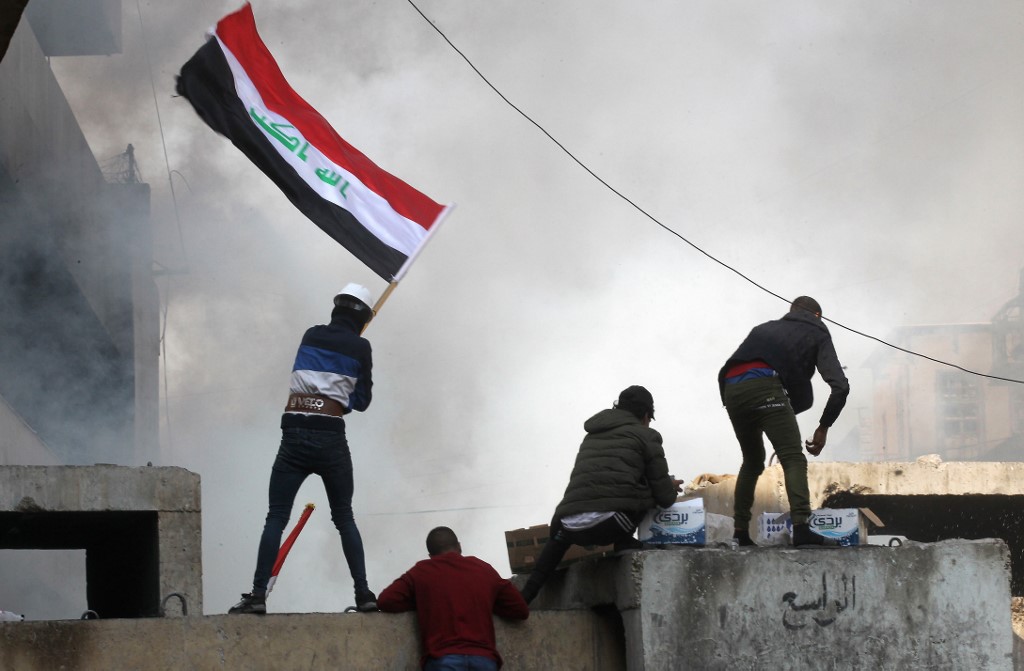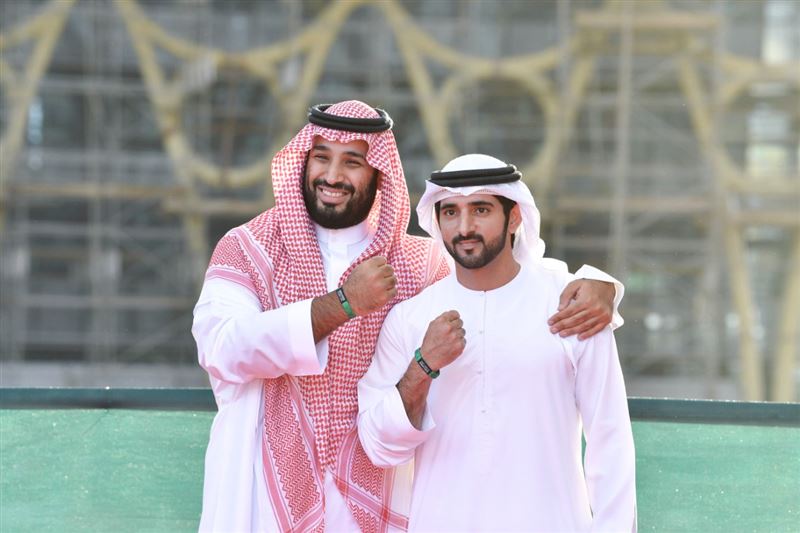Iraq PM announces resignation after call from top Shiite cleric, Friday’s death toll rises
BAGHDAD: Iraq’s embattled premier announced Friday he would resign in keeping with the wishes of the country’s top cleric, as renewed violence added to a soaring death toll in two months of anti-government protests.
Adel Abdel Mahdi’s written statement was greeted with cheers and blaring music across Baghdad’s iconic Tahrir Square, where demonstrators have massed since early October against a ruling class deemed corrupt and in hock to foreign powers.
“I will submit to the esteemed parliament a formal letter requesting my resignation from the premiership,” Abdel Mahdi wrote, just hours after Grand Ayatollah Ali Sistani used his weekly sermon to urge parliament to replace the cabinet.
Abdel Mahdi would be the first prime minister to step down since Iraq became a parliamentary system following the US-led ouster of Saddam Hussein in 2003.
“It’s our first victory, and we’re hoping for many more,” shouted one demonstrator in Tahrir, as patriotic tunes blasted from the motorised rickshaws used to ferry casualties from the square.
Nearby, protesters occupying a gutted 18-storey building that has become a symbol of the uprising could be seen dancing and pumping their fists in the air. But despite their joy, many said the premier’s resignation did not go far enough.
“We won’t leave the square until every last one of those corrupt people resigns,” said another demonstrator in a black shirt.
“Weed them all out. Every single one.”
The grassroots movement is the largest Iraq has seen in decades, but also the deadliest, with more than 400 people dead and 15,000 wounded in Baghdad and the Shiite-majority south, according to an AFP tally.
The toll continued to rise on Friday, with 15 protesters shot dead in the flashpoint city of Nasiriyah and another killed in the Shiite shrine city of Najaf.
The UN’s top official in Iraq, Jeanine Hennis-Plasschaert, said the deaths “cannot be tolerated”.
The previous day had been one of the bloodiest yet, with 44 demonstrators killed and nearly 1,000 wounded in Baghdad and across the south.
That came after protesters stormed the Iranian consulate in Najaf late Wednesday, accusing the neighbouring country of propping up Iraq’s government. Tehran demanded Iraq take decisive action against the protesters, saying it was “disgusted” by developments.
In response, Abdel Mahdi ordered military chiefs to deploy in several provinces to “impose security and restore order” — but the result was the opposite. Men in civilian clothes opened fire at demonstrators, tribal fighters deployed in the streets and military commanders.
As the death toll surged, governors and police chiefs resigned and Abdel Mahdi sacked a senior military commander. On Friday, demonstrators encircled a Nasiriyah police station and torched five police cars.
And in Najaf, where 16 people died the previous day, new clashes erupted between protesters and armed men dressed in civilian clothes. As in Baghdad, demonstrators in the south did not appear satisfied with Abdel Mahdi’s resignation.
“Our problem isn’t the prime minister — we want all the parties to go!” one man told AFP in Diwaniyah.
Since October 1, Baghdad and the south have been rocked by the most widespread street unrest in decades, demanding an overhaul of the ruling elite and reforms to root out corruption, end unemployment and improve infrastructure. The demonstrations initially shook Abdel Mahdi, who came to power last October after a strained alliance between the two largest parliamentary blocs, Saeroon and Fatah.
The protests divided them, with Fatah backing the premier while Saeroon leader and firebrand cleric Moqtada Sadr called for him to resign. But they closed ranks around the cabinet following a deal brokered by top Iranian commander Qasem Soleimani.
The tide turned again this week, culminating with Sistani’s dramatic intervention. For weeks, the 89-year-old cleric had called for restraint and urged parties to get “serious” about reform. But he ramped up his demands on Friday.
“The parliament, from which this current government is drawn, is asked to reconsider its choice in this regard,” he said in his weekly sermon. Within minutes, Saeroon as well as MP and former premier Haider al-Abadi had called for a vote of no-confidence.
The Fatah bloc called for “the necessary changes in the interests of Iraq”.
Parliament is set to meet on Sunday and if it drops its support for the government, the cabinet would remain in place as caretakers until the president names a new premier. Iraq’s constitution, drafted in 2005, does not include a provision for the resignation of the premier, so his intention to submit a letter to parliament would trigger a no-confidence vote.
The country is OPEC’s second-largest crude producer but one in five Iraqis lives in poverty and youth unemployment stands at 25 percent, according to the World Bank.


Iraq death toll passes 400 in weeks of mass protests





